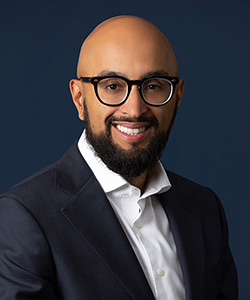By Yusuf Z. Zakir

My parents immigrated to Canada from East Africa in the 1970s. My family had lived in East Africa for several generations, having originally immigrated there from India.
I was born in Canada and raised in an immigrant household. Growing up, I lived in both Canada and the United States, and in both places, I was viewed as foreign. I never felt that I was considered a “true” Canadian or American. Though there was no single reason why, the comments I heard often had to do with the way I looked, the food we ate, the way my family dressed, or the language we used at home. This perception was amplified after 9/11, when fear took a firmer grip on the way we were othered.
When I had the opportunity to visit East Africa and India, I was excited about the prospect of finding a place that would accept me as one of their own. That excitement was short lived. In those places, too, I was perceived as foreign—I was the western brown kid, who did not truly understand his culture.
As I grew older, it dawned on me that I did not feel as if I had a true home anywhere. To this day, I struggle with this. And it is one of the many reasons I ultimately decided to become a DEI professional.
The feeling of not having a home is overwhelming. You feel isolated, unwelcome, and lonely. You feel untethered.
People from underrepresented backgrounds can feel that same way in organizations. When you’re only one of a few, of any particular background, you feel out of place. You feel as if you don’t belong. This sentiment has significant impacts. It makes one feel less loyal to his or her organization, less connected with colleagues, and less invested in the work. When you do not feel at home, you are functioning as a visitor.
It does not have to be this way. The feeling of home can be built, in a genuine way.
At Davis Wright Tremaine, our DEI vision rests on four pillars: Community, Growth, Education, and Engagement. With our community pillar, we seek to foster a culture of inclusion and belonging. This takes effort. We are prone to fall back to our default state, where we permit silos to grow. After all, everyone is busy and speed often deters intentionality.
Fostering an inclusive culture requires all of us—each of us—to do so. We must welcome our colleagues, support one another, and create spaces for the humanity we bring with us to work every day. We must make each other feel that we all belong.

Yusuf Zakir
Yusuf Zakir is the Chief Diversity, Equity, and Inclusion Officer at Davis Wright Tremaine. Yusuf leads the firm’s efforts to continue building a culture where all attorneys and staff—including those traditionally underrepresented in the legal profession—can have, and can see, a path to long-term success. He collaborates with key stakeholders to develop and implement strategies, programs, and initiatives to build a more diverse, equitable, and inclusive organization. Yusuf collaborates with DWT’s practice groups and professional development departments to scale and implement diversity, equity, and inclusion across the organization, including by working with the firm’s diversity structure to propel and accelerate these efforts. He also partners with clients and external organizations in order to foster diversity, equity, and inclusion in the broader legal profession and to cultivate an industry that recognizes intersectionality, empowers authenticity, and nurtures belonging.






